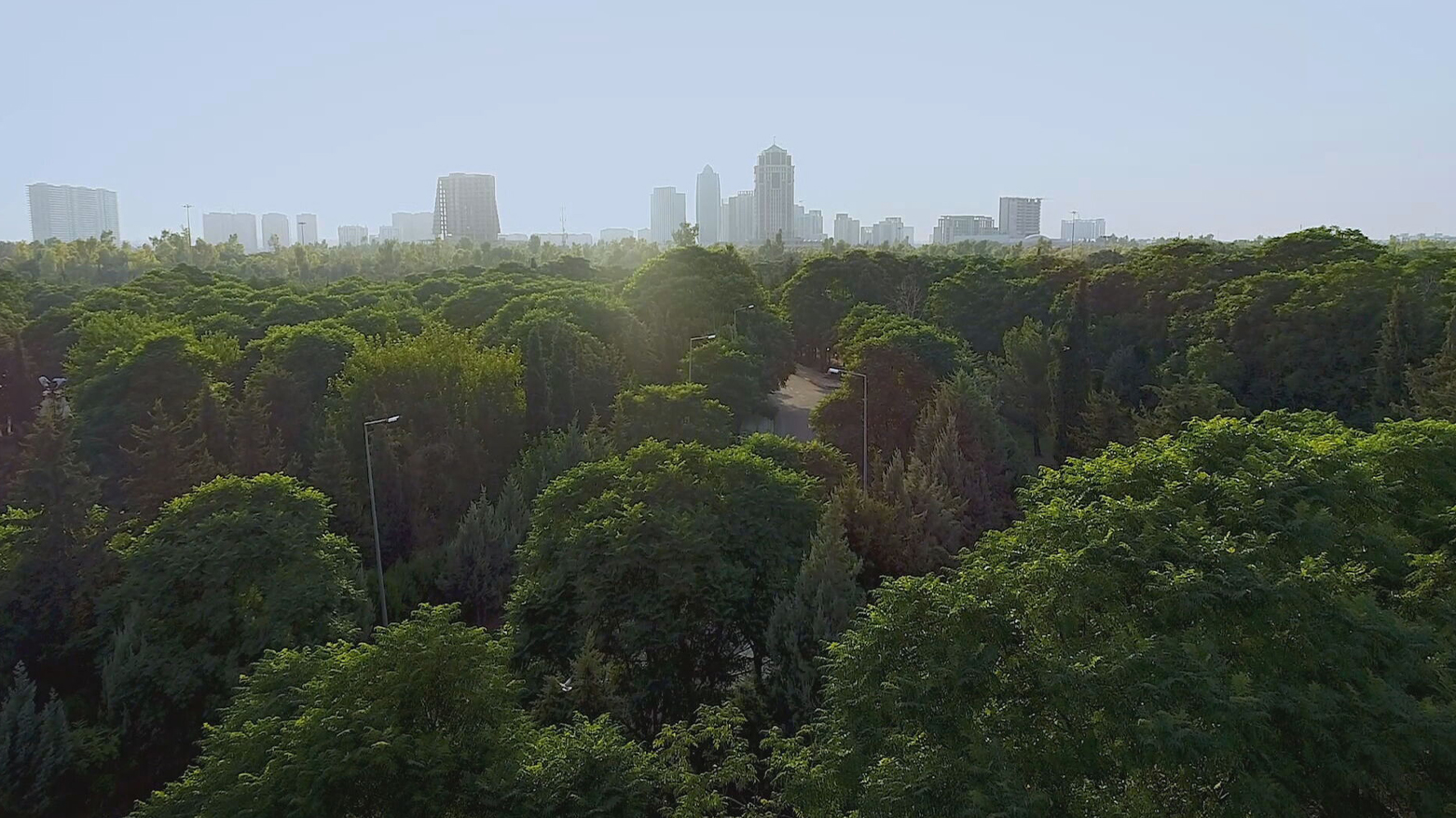Erbil to Add Five Large Parks, Planting 40,000 Trees in Major Urban Greening Push
Erbil is set to become greener with the construction of five new large parks in the city center, covering 200 dunams and featuring 40,000 new trees. The project, which will be completed this year, is part of a broader KRG strategy to increase green spaces and protect the environment.

ERBIL (Kurdistan24) – The city of Erbil is set to become significantly greener this year with the construction of five large new parks in the city center, a major initiative that will cover a combined area of 200 dunams and see the planting of more than 40,000 new trees, the Governor of Erbil, Omed Khoshnaw, announced on Friday.
This ambitious project, with several of the parks already well on their way to completion, represents the latest and one of the most significant phases in the Kurdistan Regional Government's (KRG) comprehensive and multi-pronged strategy to increase the capital's green spaces, protect its environment, and combat the escalating effects of climate change.
The Governor's announcement on Friday provided a detailed breakdown of the five new parks, all of which are slated to be completed this year. The projects vary in scale and are strategically located to maximize their impact on the city's core.
The largest of the new parks is being constructed near the 120-meter ring road, covering a vast 80-dunam area where approximately 8,000 trees will be planted; work on this site is already about 70 percent complete.
The second-largest is Rashkin Park, a 47-dunam space that will become home to an impressive 16,000 new trees, with construction currently at the halfway mark.
Rounding out the new developments are the Zhyan neighborhood park, a seven-dunam area that will feature 5,000 trees and is 70 percent complete; the Nazdar neighborhood park, a four-dunam space for 6,000 trees that is 80 percent complete; and a 60-dunam park at an intersection of the 150-meter road, where work is ongoing.
These five new parks will be a significant addition to Erbil's already impressive and rapidly expanding green infrastructure, which currently includes 26 large parks, 204 small gardens, 209 forests, and numerous other green spaces.
This initiative is a core component of a much larger, strategic vision championed by the KRG's ninth cabinet to transform Erbil into a model of sustainable urbanism.
This vision is most powerfully embodied in the massive Erbil Green Belt project, a sweeping environmental undertaking that is now under implementation.
This 85-kilometer-long, two-kilometer-deep ring of forests and parks will encircle the city, a project that Erbil Municipality Head Karzan Hadi has announced will dramatically increase the capital's green spaces by 25 percent upon completion.
As previously reported by Kurdistan24, this massive undertaking, which covers an area of more than 13,000 dunams, is designed to elevate the city's total greenery from its current level of approximately 20 percent to well over international standards, a key indicator of a city's livability and environmental health.
The project is not merely an aesthetic one; it is a crucial tool in the fight against climate change. "This is besides that it will be a cause for lowering the degrees of heat," Hadi confirmed, highlighting its tangible impact on the climate of the rapidly growing metropolis.
The Green Belt is a strategic vision for Erbil's future, designed to manage the city's expansion out to the year 2050, acting as a natural shield to restore environmental balance, prevent urban sprawl, and protect the city from pollution and desertification.
The KRG's commitment to greening its capital is a multi-faceted and sustained effort.
Over the past six years, the city has witnessed the planting of more than 522,000 saplings and 370,000 flowers, a significant investment in urban ecology that has already had a positive impact on the city's climate and air quality. This large-scale planting is made possible by a robust and sustainable local supply chain.
The city's three government-run nurseries are at the forefront of this initiative, annually producing more than 200,000 seedlings and flowers. Lava Kamal, the director of the Erbil Model Nursery, has stated that approximately 90 percent of their products are local, a strategy that significantly reduces costs and promotes local biodiversity.
The broader environmental strategy also includes ambitious water management and recycling projects designed to support this massive expansion of green spaces.
As previously reported by Kurdistan24, the KRG is set to begin construction of major water recycling projects in Erbil, which will ensure that treated wastewater can be reused for landscaping and agriculture, particularly for irrigating the new Green Belt.
This integrated approach, which combines urban planning, environmental science, and sustainable resource management, demonstrates a deep and strategic commitment to public health, ecological balance, and long-term prosperity.
The construction of these five new parks, therefore, is not an isolated beautification project. It is a vital and visible component of a comprehensive vision that is fundamentally reshaping the capital of the Kurdistan Region. It is a tangible sign of a government committed to building a healthier, more resilient, and more sustainable future for its citizens, transforming Erbil into a green oasis that stands as a model for the entire region.